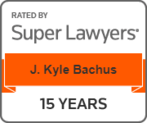Questions to ask during a Family Meeting after Catastrophic Injury
Catastrophic injuries are severe injuries impacting a person’s quality of life and ability to perform routine tasks. While some injured persons may eventually make a full recovery, others require long-term medical care or sustain permanent disabilities stemming from their injuries.
The Centers for Disease Control and Prevention (CDC) reports that doctors in medical offices and emergency rooms treat over 120 million injuries annually. Family members of those with catastrophic injuries may attend a family meeting with the medical professionals who are caring for their loved one. Let’s explore family meetings for catastrophic injury cases and the questions you should ask during these meetings.
Bachus & Schanker Wins – Over $1 Billion Recovered
Family Meetings
Medical personnel should hold a catastrophic injury family meeting to discuss the patient’s prognosis and treatment options. These formal meetings are typically initiated and attended by the medical professionals treating the injured person. Depending on the injured person’s condition, multiple specialists could be involved in their care. Each medical professional addresses the patient’s injuries and treatment options.
The injured family member’s relatives also attend the meeting. It’s usually limited to adult family members. Some patients may be unconscious or suffer traumatic brain injuries (TBIs) that prevent them from making decisions about their care. In those scenarios, family members responsible for medical and financial decisions should attend the family meeting.
Questions to Ask
The primary objective of a family meeting is to inform adult family members of the injuries sustained from the catastrophic accident and the injured person’s short-term and long-term prognosis. Family members should ask any questions necessary to clarify details related to the injuries, prognosis, and treatment. Consequently, some family members may have additional questions about their loved one’s injuries.
Common questions:
- Who should family members contact with questions? Verify the person’s position, name, and contact information.
- What time of day should the family contact medical personnel? You may ask about work schedules and what time they anticipate seeing the patient.
- Can we expect regular non-emergency updates? How often will we receive these updates?
- Can we contact you for updates? Get the contact information of the appropriate person who can provide updates.
- Who are the specialists providing treatment? Some patients may need care from multiple specialists. For example, a spinal cord injury may require treatment from a neurosurgeon. They may also need speech, occupational, rehabilitation, and physical therapy. Family members should leave the meeting with a clear understanding of each specialist providing treatment and their role in the injured person’s care.
- What services does the facility offer? Some medical facilities have healthcare social workers, grief counselors, or pastoral care providers. The person who suffered a catastrophic injury and their family members may need mental health care following the accident.
- Who handles financial matters? Individuals with catastrophic injuries may face considerable expenses, including medical bills, the cost of prescription medications, and loss of income.
- Although health insurance covers some costs, most policies require insurees to pay copays and deductible costs. Refer to “Unthinkable” by Kyle Bachus to learn more about financing options to cover expenses after a catastrophic accident. Family members may need to negotiate a payment plan with the hospital to cover out-of-pocket costs.
- What are the short-term and long-term prognoses? Some individuals need extensive short-term care and make a full recovery. Others may need long-term care before returning to work. In some cases, catastrophic injuries permanently impact the person’s quality of life. Family members should clearly understand the short-term and long-term prognoses for their loved one to ensure they prepare for the injured person’s needs.
- What are your visitation policies? Verify visiting hours and determine whether you can adjust hours based on the needs of family members and the injured party.
Legal Advice
Your catastrophic injury lawyer can attend the family meeting. After someone suffers a personal injury, they or their family members may consult an injury lawyer and file an injury claim.
Invite the patient’s injury lawyer to your family meeting. This is a great way to establish a solid attorney-client relationship and ensure the lawyer has the information they need to prepare the injury claim. The attorney can ask questions directly, verifying how the injury impacts the patient’s activities of daily living and ability to generate income.
Contact a reputable personal injury law firm about your case. Those outside the Denver area can consult experts at our offices in Colorado Springs, Englewood, and Fort Collins.
Sources
Accidents or Unintentional Injuries. (2022).
Berstein, S. (2021). What is Physical Therapy?
Occupational Employment and Wages: Healthcare Social Worker. (2021).
You Deserve Fair Compensation
Don’t let the insurance companies intimidate you into accepting less than you deserve. We’re ready to fight for you.

Written and Legally Reviewed By: Kyle Bachus
4.6 ★★★★★ 1,461 Google Reviews
Kyle is a member of the Colorado and Florida Bar associations and has served on the Board of Directors of the Colorado Trial Lawyers Association for more than twenty years in total. Over the years, Kyle has achieved justice for many clients. He has served on numerous committees and repeatedly won recognition from his peers at both the state and national level. He is proud of the role he has played in the passage of state and national legislation to protect consumers and is a frequent speaker and guest lecturer.







